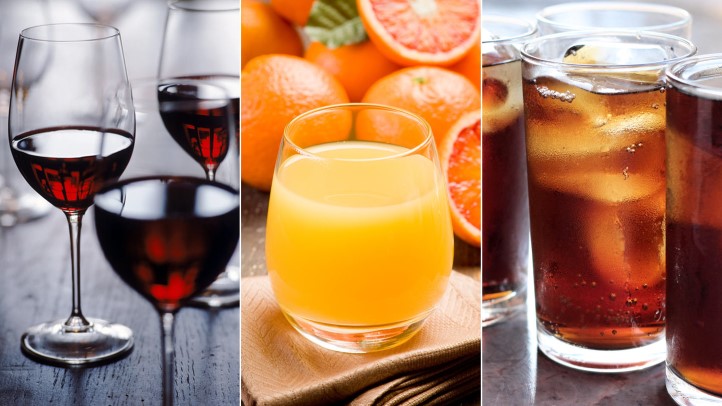Much of what you drink, including diet drinks and sports drinks, can damage your teeth. To keep your mouth healthy, try these strategies for choosing drinks.
Aside from what you eat, what you drink has a big impact on your oral health. When you drink a liquid, you’re essentially bathing your teeth in that beverage. And many drinks pose a hazard to your dental health similar to that of sweet treats such as candy and chocolate.
When it comes to your diet, there are two chief threats to the health of your teeth: sugar, which promotes the growth of bacteria in your mouth and damages enamel, and acid, which also harms enamel. Both are found in a variety of popular foods and drinks.
Top Beverages That Can Harm Your Teeth
Edmond R. Hewlett, DDS, a professor at the UCLA School of Dentistry and a consumer adviser for the American Dental Association, says he won’t touch fruit juice — it’s high in sugar and can also be quite acidic. This category of drink includes smoothies, since many are made with citrus fruits, which are acidic, and fruits that are high in sugar.
“Once sugar hits the mouth,” says Dr. Hewlett, “bacteria are very effective and quick.”
Another thing to consider is the sugar you add to your coffee or tea. This sugar does more harm than the coffee or tea itself, which isn’t acidic enough to cause as much damage as many people believe.
“However,” says Hewlett, “do keep in mind that coffee and tea will stain your teeth.” To help prevent staining, he recommends that you run a wet toothbrush over your teeth or at least rinse your mouth out with water after drinking these beverages. This can help slow the amount of staining over time.
Wine also contains acid, but Hewlett says only excessive wine consumption puts your tooth enamel at risk. However, like coffee and tea, it can stain your teeth, and drinkers might want to consider rinsing with water after imbibing to reduce the amount of staining over time.
Many people rightly believe that regular soda is bad for the teeth because of its high sugar content. But sodas, as well as diet sodas and diet sports drinks, can also cause significant harm to tooth enamel because of the acid they contain.
“These drinks often contain phosphoric or citric acid to make them tangy and taste good,” says Hewlett. “Soda actually contains an acid that dentists use to rough up enamel before administering bonding treatment.”
It’s Not Just What You Drink But How You Drink It
Keeping your teeth healthy while you drink involves more than just making the right choices of what to drink.
If you drink slowly, you allow the liquid to have more contact with your teeth. If you nurse a diet soda throughout the day, for example, or sip a sugary latte during your hour-long commute, the damage to your teeth can be much greater than if you finish your beverage quickly.
Drinking with a straw can help reduce damage to tooth enamel — it seems to help by allowing harmful substances to bypass the teeth, Hewlett says. Still, he advises that it’s better to avoid harmful drinks altogether.
Also, if you tend to chew ice that’s in your beverage, Hewlett advises that you break the habit. Over time, chewing ice can cause tiny cracks in your teeth, weakening them; and eventually, “a chunk of your tooth can even break off when you least expect it,” he explains.
Drink Tips to Promote Healthy Teeth
When it comes to choosing what to drink, you can take steps to keep your teeth strong and healthy. Start with these strategies:
- Drink fruit juices and smoothies with a straw and aim to finish them in one sitting as opposed to sipping them slowly.
- Put little or no sugar in your coffee, particularly if you tend to nurse it.
- Drink regular and diet sodas and sports drinks sparingly, and don’t allow yourself to sip them for prolonged periods.
- Use a straw when it makes sense, to help avoid bathing your teeth in harmful sugary or acidic liquids.
- Use a wet toothbrush or rinse your mouth out with water after you drink acidic beverages or anything that might stain your teeth, such as wine, coffee, and tea.
- Don’t chew ice.
- When in doubt, choose water.
Source: Tami Swartz of everydayhealth.com.

